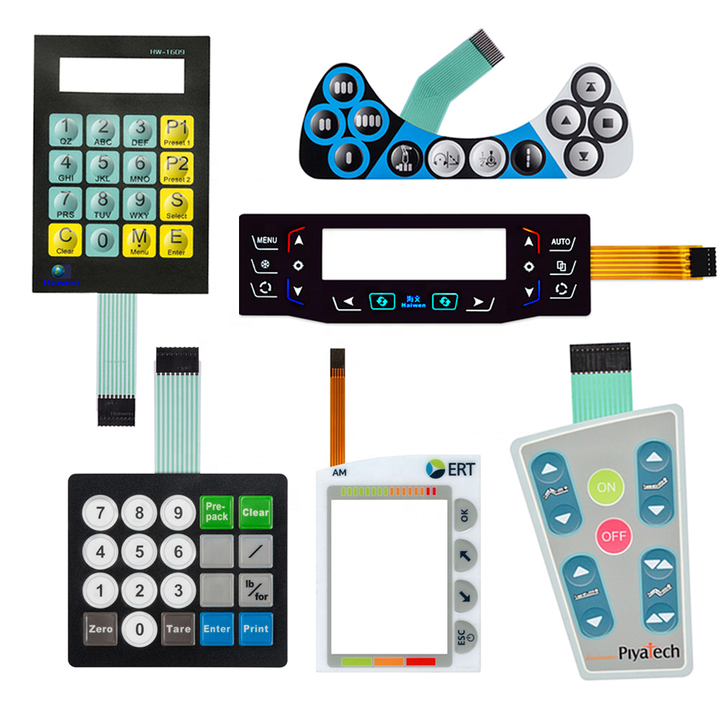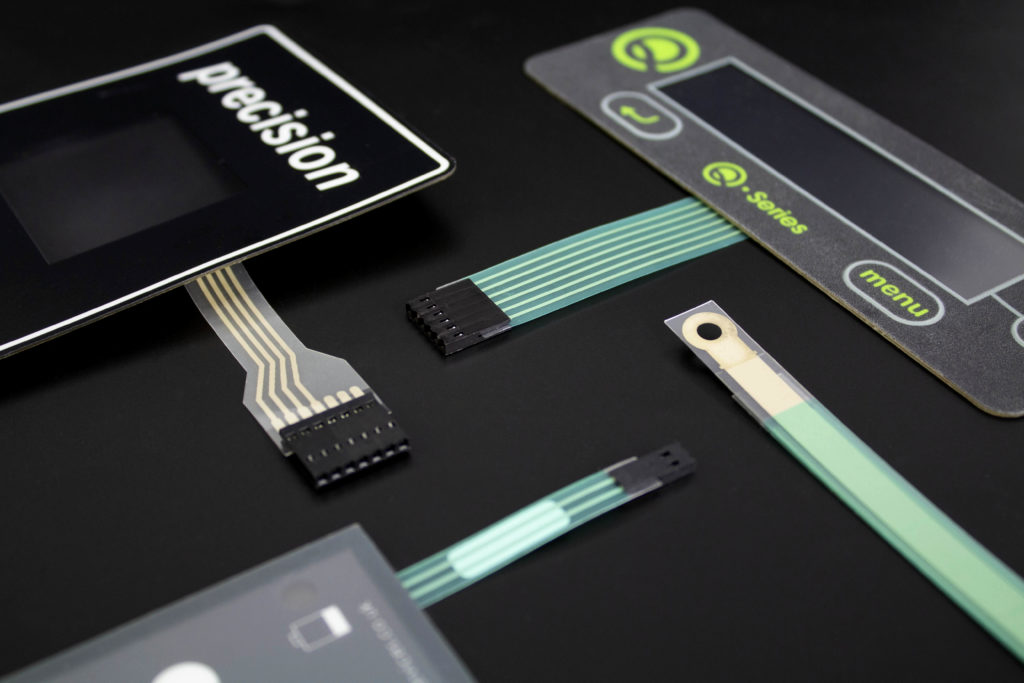Discover How Membrane Switches Function and Their Role in Modern Electronics
Membrane Switches represent a sophisticated combination of technology and style within the world of contemporary electronic devices, serving as essential user interfaces in various tools. Comprehending the complexities of Membrane button functionality and their broader ramifications in enhancing customer experience welcomes more exploration right into their layout, benefits, and the ingenious growths forming their future in modern technology.
What Are Membrane Switches?

Membrane switches are identified by their durability and resistance to environmental elements, such as dust, wetness, and extreme temperatures. They can be personalized with different graphics, colors, and tactile comments choices, improving individual experience while preserving aesthetic charm - membrane switches. Moreover, the unification of published circuits enables smooth assimilation right into tools, boosting overall functionality.
The adaptability of Membrane buttons is evident in their ability to support both complex and simple control features. They can include functions such as LED signs and touch-sensitive technology, dealing with certain individual requirements. As modern technology remains to develop, Membrane Switches remain essential for making it possible for user-friendly and effective customer interfaces, consequently playing a critical function in the advancement of contemporary electronic devices.
Parts of Membrane Switches
Membrane switches are made up of numerous crucial parts that interact to create a trustworthy and useful user interface. The key elements consist of the graphic overlay, sticky layer, spacer layer, and conductive traces.
The visuals overlay functions as the user interface, commonly published on a flexible substrate such as polyester or polycarbonate. This layer not only offers visual allure but additionally includes responsive feedback, visual signs, and protective functions. Underneath the graphic overlay lies the glue layer, which protects the button to the tool and guarantees sturdiness versus ecological stresses.
The spacer layer is important for preserving the essential gap between the visuals overlay and the circuit layer. When pressure is used, this space allows for the activation of the button. The conductive traces, generally made from silver or carbon, form the electrical paths that finish the circuit when the button is engaged.
Furthermore, a support layer may be consisted of for architectural assistance and insulation. These components work together flawlessly, making sure that Membrane switches are both resilient and straightforward, making them vital in different contemporary electronic applications.
How Membrane Switches Work
How do Membrane Switches feature efficiently within digital devices? Membrane Switches run on the principles of pressure-sensitive modern technology, making use of a split building that includes visuals overlays, adhesive layers, and conductive components.
The style of Membrane switches is essential for their reliable procedure (membrane switches). The layers are diligently crafted to give tactile responses, sturdiness, and resistance to environmental elements such as moisture and dirt. The inclusion of domes-- little, elevated locations within the switch-- boosts responsive reaction, giving users with a noticeable click sensation upon activation
Additionally, Membrane buttons can be customized in regards to dimension, form, and graphics, making them ideal for various applications. They are often made use of in control panels, clinical gadgets, and consumer electronics due to their sleek style and integrity. On the whole, the effective functioning of More Info Membrane buttons is essential in improving individual interaction and making sure seamless operation in contemporary digital gadgets.

Applications in Modern Instruments
Utilizing their unique layout and capability, Membrane switches have actually come to be integral elements in a vast variety of modern-day digital tools. These versatile interfaces are employed in customer electronics, industrial devices, clinical tools, and automotive controls, offering seamless customer communication.
In customer electronics, Membrane switches are generally located in home appliances like microwaves, washing makers, and various other household tools, where they enable intuitive control with a sleek profile. Their inconspicuous layout promotes combination into portable tools, enhancing visual appeal without compromising functionality.
In commercial applications, Membrane Switches work as control panels for equipment, supplying toughness and resistance to rough environments. Their ability to hold up against dampness and impurities makes them perfect for use in production and processing industries.
Medical tools also gain from Membrane switches, which are designed to be simple to clean and keep, guaranteeing health in professional settings. They are usually made use of in analysis tools, patient tracking systems, and mobile clinical gadgets, where reliability is critical.
Advantages of Membrane Buttons
Among the crucial advantages of Membrane switches is their versatility, which allows them to be tailored for a selection of applications throughout multiple sectors. These switches can be created in various sizes and shapes, fitting distinct item requirements while offering seamless combination into devices. Their thin profile enables a small and smooth style, commonly improving the aesthetic charm of read the full info here digital items.
An additional considerable benefit is their durability - membrane switches. Membrane buttons are typically resistant to dust, moisture, and chemicals, making them suitable for rough settings. This durability prolongs their life expectancy compared to traditional mechanical switches, lowering the need for regular replacements
In addition, Membrane Switches deal cost-effectiveness. The production process entails printing innovations that decrease manufacturing costs, particularly for big runs. This price, integrated with low maintenance needs, makes them an eye-catching choice for manufacturers.

Final Thought
In conclusion, Membrane Switches represent a substantial innovation in customer interface modern technology within contemporary electronics. As the need for user-friendly and resistant interfaces proceeds to grow, the role of Membrane buttons in forming individual experience will unquestionably expand.
Membrane Switches stand for an advanced assimilation of modern technology and layout within the world of modern electronic devices, offering as essential user interfaces in numerous devices.In the realm of contemporary electronics, Membrane Switches serve as important parts that help with user communication with tools. As innovation continues to progress, Membrane Switches continue to be crucial for allowing instinctive and efficient individual interfaces, thereby playing a crucial role in the innovation of contemporary digital gadgets.
Exactly how do Membrane Switches feature efficiently within digital devices? Overall, the effective functioning of Membrane buttons is critical in improving individual communication and making certain seamless procedure in modern digital additional resources gadgets.